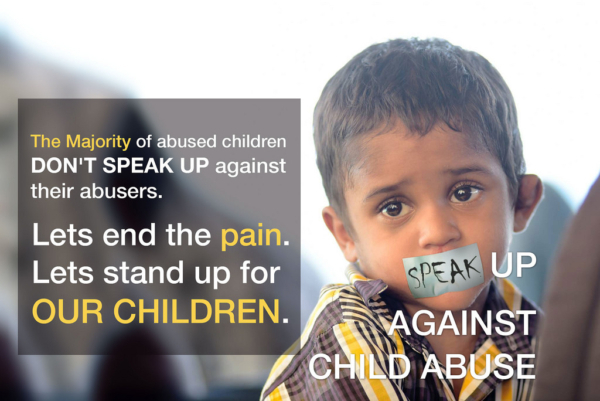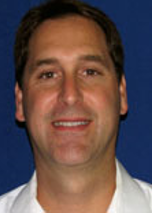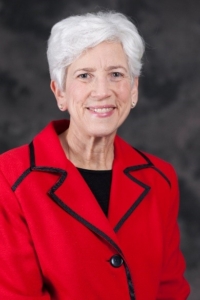

Trifecta
September 27, 2018 - September 28, 2018

PLEASE NOTE THAT THE TRIFECTA WILL BE OFFERED AGAIN IN THE SPRING WORKSHOP LINE UP
Trifecta
Friday, September 28, 2018
PCOM 4170 City Avenue Philadelphia, PA 19131
Earn credits for all 3 mandatory workshops, Child Abuse, Suicide, and Ethics
Updated Child Abuse and Trafficking Recognition and Reporting Training for Mandated Reporters in Pennsylvania
Time: 8:45am to 11:45am
Presented By: Ivan Haskell, Ph.D.
3.0 CE credits
Act 31 credits
Act 48 credits
Important note: Even if you have taken this course during your last licensing period, this course is updated, allows for new CE credits, and satisfies your new requirement with the state of Pennsylvania in this new licensing period.
In accordance with a Pennsylvania mandate for all health care professionals and funeral directors, the Philadelphia Society of Clinical Psychologists presents this three hour workshop to discuss the obligation of mandated reporters and moral obligation of permissive reporters to report reasonable suspicions of child abuse and child labor and
sexual trafficking.
Objectives:
- Discussing the differences between Child Protective Services and General Protective Services
- Describing components of Child abuse and Exclusions to Child Abuse.
- Listing common signs of Child Abuse and Sexual abuse
- Describing Mandatory and Permissive Child Abuse Reporters and penalties for not reporting.
- Describing Sex and Labor Trafficking and Methods of Reporting.
 Ivan Haskell, Ph.D., is the Executive Director of the Joseph J. Peters Institute, an outpatient assessment, treatment and prevention program serving survivors of sexual abuse and offenders with specialized programs for children, adolescents and adults in Center City Philadelphia. Dr. Haskell has a Ph.D. in Clinical-Community Psychology from the University of South Carolina and is a licensed psychologist in Pennsylvania. Over the last fifteen years, his focus has been on the design, implementation, and direction of child and adult community mental health programs.
Ivan Haskell, Ph.D., is the Executive Director of the Joseph J. Peters Institute, an outpatient assessment, treatment and prevention program serving survivors of sexual abuse and offenders with specialized programs for children, adolescents and adults in Center City Philadelphia. Dr. Haskell has a Ph.D. in Clinical-Community Psychology from the University of South Carolina and is a licensed psychologist in Pennsylvania. Over the last fifteen years, his focus has been on the design, implementation, and direction of child and adult community mental health programs.
Dr. Haskell has served as the clinical and administrative director of several publicly-funded mental health programs in Philadelphia and surrounding communities. These programs have been located in traditional clinics as well as in school-based settings. In 2010, he assumed the role of Director of Social and Psychological Services at Mastery Charter Schools, where he was instrumental in creating its social work and counseling/therapy programs. Prior to assuming the role of Executive Director at the Joseph J. Peters Institute, Dr. Haskell served as the Chief Program and Clinical Officer at Northern Children’s Services. Dr. Haskell is interested in the application of evidence-based practice in community and school settings, the design and implementation of effective prevention programs, and the use of effective performance-based data for program improvement.
Suicide: Risk factors, protective factors, and safety planning
Time: 12pm to 1pm
Presented By: Kyle Holsinger, Psy.D.
1.0 CE credit
Act 48 credit
The current presentation will highlight common risk factors and warning signs of suicide in a variety of populations and ages. In addition, protective factors and deterrents of suicide will be explored and discussed. Finally, the program will focus on a discussion of safety planning theory and incorporating a safety plan into patient treatment goals and practice.
Objectives:
1.Able to describe and articulate Risk factors and Warning Signs of suicide.
2. Able to list the steps necessary to assess a variety of populations at risk for suicide.
3. Able to articulate ways manage and treat patients who are at risks of suicide.
4. Able to describe and implement a Safety Plan in treatment with patients at risk for suicide.
5. Able to describe and incorporate suicide theory into assessment and practice.
 Kyle Holsinger, Psy.D., is a licensed psychologist in the state of Pennsylvania, and he received a Doctorate of Psychology degree from the Philadelphia College of Osteopathic Medicine in 2005. He is the Clinical Director for Delaware County Professional Services (DCPS). DCPS is an outpatient mental health practice with 60 therapists and psychiatrist, servicing all ages and providing individual, couples, and family therapies. He developed the practice’s Primary Health Care Integration program, and has collaborated with numerous internal medicines, family medicine and pediatric offices. DCPS currently has therapists inside of 10 primary care physician offices. Dr. Holsinger has a special interest in treating populations with chronic medical conditions.
Kyle Holsinger, Psy.D., is a licensed psychologist in the state of Pennsylvania, and he received a Doctorate of Psychology degree from the Philadelphia College of Osteopathic Medicine in 2005. He is the Clinical Director for Delaware County Professional Services (DCPS). DCPS is an outpatient mental health practice with 60 therapists and psychiatrist, servicing all ages and providing individual, couples, and family therapies. He developed the practice’s Primary Health Care Integration program, and has collaborated with numerous internal medicines, family medicine and pediatric offices. DCPS currently has therapists inside of 10 primary care physician offices. Dr. Holsinger has a special interest in treating populations with chronic medical conditions.

Ethic Myths and Mysteries
Time: 1:15pm to 4:15pm
Presented By: Linda Knauss, Ph.D.
3.0 CE
Act 48
Have you ever wondered where conventional wisdom comes from? Do we always have to give clients three names when making a referral, or always warn identified third parties when a client threatens them, and is it really a good idea to get a suicidal client to sign a “suicide contract?” Where are these things written? Where did they come from? This workshop will look at some common risk management and ethical beliefs and examine the rationale behind them. Do these ideas originate in professional standards, principle-based ethics, or are they myths? Clinical vignettes will be presented and participants are encouraged to share their own ethical dilemmas.
Objectives:
1.Identify common beliefs that are not based on overarching ethical principles.
2. Describe the methodology to be used to identify false of unhelpful ethical or risk management principles.
3. Apply improved ethical decision-making skills.
 Linda K. Knauss, Ph.D., ABPP is a Professor at Widener University’s Institute for Graduate Clinical Psychology and the former Director of Internship Training there. Dr. Knauss is Chair of the Ethics Committee of the American Board of Professional Psychology. She is the Past-chair of the American Psychological Association’s Ethics Committee, Past-chair of The Pennsylvania Psychological Association’s Ethics Committee, and has served as Co-chair of the Philadelphia Society of Clinical Psychologists’ Ethics Committee. Dr. Knauss taught courses in ethics at Widener University, Immaculata University, and the Philadelphia College of Osteopathic Medicine. She has authored several book chapters and journal articles on ethics, and has taught many continuing education workshops on a variety of ethical issues.
Linda K. Knauss, Ph.D., ABPP is a Professor at Widener University’s Institute for Graduate Clinical Psychology and the former Director of Internship Training there. Dr. Knauss is Chair of the Ethics Committee of the American Board of Professional Psychology. She is the Past-chair of the American Psychological Association’s Ethics Committee, Past-chair of The Pennsylvania Psychological Association’s Ethics Committee, and has served as Co-chair of the Philadelphia Society of Clinical Psychologists’ Ethics Committee. Dr. Knauss taught courses in ethics at Widener University, Immaculata University, and the Philadelphia College of Osteopathic Medicine. She has authored several book chapters and journal articles on ethics, and has taught many continuing education workshops on a variety of ethical issues.
Dr. Knauss is the past-president of the Pennsylvania Psychological Association, the Pennsylvania Psychological Foundation, and the Philadelphia Society of Clinical Psychologists. She is also a member of the American Psychological Association’s Council of Representatives. Dr. Knauss is the recipient of the 2002 Ethics Educators Award presented by the Pennsylvania Psychological Association’s Ethics Committee, and the recipient of the 2004 Pennsylvania Psychological Association Distinguished Service Award.
In addition to her work at Widener University, Dr. Knauss maintains a private clinical practice where she sees children, adolescents, adults, and families.


